This post was edited on Feb. 28, 2025.
Did you know EnergyTech UP offers multiple bonus prizes from an array of U.S. Department of Energy program offices to students who develop business plans around specified energy technologies?
In the Explore Phase, bonus prize finalists will be awarded $5,000 each and invited to advance to the Refine and Pitch phases of the competition. At the conclusion of the Pitch Phase, each program office will choose a final Bonus Prize Winner to be awarded $20,000. Read more about the bonus prize focus areas below and in a new, updated Official Rules document located in the Resources tab.
Applicants interested in learning more about these bonus prize opportunities are also encouraged to join the next informational webinar on Dec. 10. At this event, attendees can learn about the prize, including more information about the differences between the Student Track and Faculty Track, and ask questions during the live Q&A. Register for the webinar today to reserve your spot!
Below are the DOE technology offices and their corresponding bonus prize challenges:
- Arctic Energy Office Bonus Prize
As a team made up of Alaska-based students, demonstrate and propose an innovative business model for an emerging energy technology that helps meet the energy, science, and security needs of the U.S. and its Arctic allies.
- Geothermal Technologies Office Bonus Prize
Develop innovative business models to increase the adoption of geothermal technologies that address key exploration and operational challenges.
- Office of Nuclear Energy Bonus Prize
Develop innovative business models to accelerate the development and deployment of advanced technologies supporting advanced reactors and fuel cycle technologies.
- Office of Electricity Grid-Enhancing Technologies (GETs) Bonus Prize
Develop innovative business models to increase the adoption of GETs to benefit the U.S. power grid.
- Office of Electricity Grid-Scale Power Electronics (PE) Bonus Prize
Develop innovative business models to stimulate the adoption of advanced power electronics in the U.S power grid.
- Office of Electricity Long-Duration Energy Storage (LDES) Bonus Prize
Develop innovative business models to propose an LDES technology solution, explain the technology’s use case, and address market challenges to enable greater adoption of LDES in the U.S. power system. Innovative energy storage use cases are encouraged.
- Solar Energy Technologies Office Bonus Prize
Develop innovative business models to improve the performance, affordability, reliability, and value of solar technologies in the U.S. grid and to tackle emerging challenges in the solar industry.
- Hydrogen and Fuel Cell Technologies Office Bonus Prize
Develop innovative business models to identify mechanisms for commercially viable hydrogen technologies to achieve market liftoff, supporting domestic competitiveness, and job creation.
- Water Power Technologies Office Bonus Prize
Develop innovative business models for a novel hydropower or marine technology of your choice that tackles emerging challenges in the water power industry and aims to improve the performance, affordability, reliability, and value of hydropower or marine energy in the United States.
Below are additional bonus prizes offered by the Office of Technology Transitions:
- As in past years, the Office of Technology Transitions: National Lab IP Licensing bonus prize is awarded to a team who develops innovative business models to help accelerate the commercialization of technologies available on the Lab Partnering Service website.
- Back again after its inaugural run in the EnergyTech UP 2024 cycle, the Office of Technology Transitions will also offer a bonus prize to an undergraduate-only team. Eligible teams must be made up of only undergraduate students, including those pursuing an associate degree or bachelor’s degree.
Ready to learn more? Register today for the Dec. 10 informational webinar!

